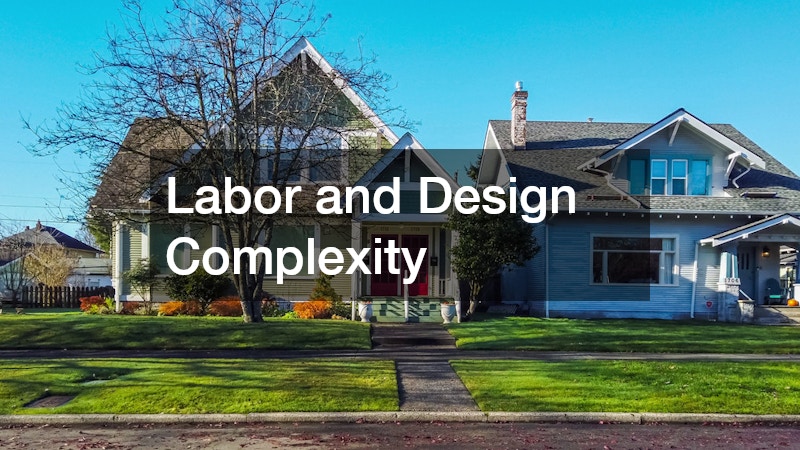Discover how driveway contractors transform ordinary materials into stunning custom looks. This article explores the innovative techniques and approaches used to personalize driveways, answering key questions on durability, cost-effectiveness, and design possibilities. By delving into the use of common materials, the methods for maintaining durability, and key cost factors, homeowners can make informed decisions about creating personal and unique driveway designs.
Materials Contractors Commonly Use for Custom Driveways
Concrete: Versatile and Customizable
Concrete is one of the most adaptable building materials available, allowing contractors to extend creativity beyond standard designs. Dye can be added to the mix to create different colors, providing a vibrant palette for customization.
Furthermore, concrete can be stamped to replicate the look of stone, brick, or tile, making it both versatile and stylish.
Contractors utilize concrete’s ability to be molded into geometric patterns or customized textures, like wood or cobblestone. For homeowners seeking a unique driveway, concrete provides an opportunity to blend seamlessly with the surrounding landscape. Contractors often enhance the surface with finishing techniques to increase aesthetic appeal and provide a non-slip grip.
In the custom driveway sector, concrete’s flexibility in design is matched by its practical benefits. It manages temperature fluctuations well, reducing the risk of cracks and other weather-related damage. Moreover, its adaptability allows for the integration of functional aspects like drainage solutions and lighting.
Asphalt: Traditional Meets Modern Design
Asphalt remains a popular choice due to its durability and affordability, though its potential for customization should not be underestimated. Innovative techniques allow it to be mixed with other materials, such as aggregate, to produce unique textures and finishes. Contractors can create eye-catching designs by incorporating pavers or stamped borders to add contrast and elegance.
Traditionally, asphalt driveways present a sleek, clean look that blends well with a wide range of architectural styles. They can be further personalized with modern techniques, such as colored coatings or patterns, making them suitable for driveways that require a sophisticated appearance. Homeowners favor asphalt for its ease of repair, as damaged areas can be readily patched without noticeable inconsistencies.
Modern driveway contractors often recommend asphalt for its innate ability to withstand changing climates, which can be crucial for maintaining long-term appearance and functionality. As customization in asphalt advances, innovative sealants and topcoats enhance its longevity while broadening the scope of design options. Asphalt’s flexibility allows for collaboration with other materials to produce a rich, layered texture and visual appeal.
How Contractors Ensure the Durability of Customized Driveways
Techniques for Enhancing Durability
To ensure the longevity of custom driveways, contractors employ a variety of strength-enhancing techniques. Sealing the surface is a common practice, providing a protective layer against moisture and reducing the likelihood of cracks. Additionally, the use of reinforcement strategies such as fibermesh within concrete ensures that driveways sustain heavy loads.
In areas prone to extreme weather, contractors may incorporate integrated heating systems to prevent ice damage. Driveways can be further enhanced by using high-strength materials or chemical admixtures to improve flexibility and impact resistance. These methods collaboratively provide a robust base that sustains the driveway’s aesthetic appeal over time.
Regular Maintenance Practices
Regular maintenance plays an integral role in preserving the custom look and function of driveways. Routine cleaning to remove debris and stains helps maintain the material’s original color and texture. Washing the surface with appropriate solutions ensures that contaminants do not erode the material or affect its appearance.
Sealing is a periodic maintenance task that shields driveways from environmental damage and provides a fresh, polished look. Moreover, addressing cracks and chips promptly prevents them from expanding, safeguarding the driveway’s integrity. Contractors often recommend annual inspections to assess wear and perform necessary adjustments or repairs.
Cost Factors to Consider When Opting for a Custom Driveway
Material Costs and Budgeting
The cost of creating a custom driveway can vary widely, depending largely on the choice of materials. Concrete is often more expensive than asphalt but offers superior aesthetics and customization flexibility. On the other hand, asphalt is a cost-effective option that provides strength and durability at a lower price point.
When budgeting for a custom driveway, homeowners should consider additional expenses such as coloring agents, stamps, and specialty aggregates. Also, higher-quality materials generally require a more substantial initial investment but provide long-term savings through reduced maintenance needs. Thus, careful planning and selection can optimize both budget and design aspirations for the homeowner.
Labor and Design Complexity
The complexity of the driveway design heavily influences the labor costs, as intricate patterns require skilled artisans to execute. Designs involving multiple-step processes, such as stamped or inlaid patterns, generally increase the labor bill because of the expertise and time required. Furthermore, the geographical location of the project may affect labor rates, with urban areas typically incurring higher costs than rural areas.
Contractors charge based on the time, technical skill, and equipment involved in creating a custom driveway. However, homeowners can mitigate some expenses by opting for less intricate designs that still deliver impressive curb appeal. Consulting with contractors during the design phase can help balance complexity with budgetary constraints.
Driveway contractors provide a wealth of options for creating personalized driveways using simple materials. By understanding the materials, techniques for durability, and cost considerations, homeowners can achieve a custom look that enhances curb appeal and stands the test of time. Careful planning and maintenance, tailored to specific objectives and environments, ensure that these driveways offer both beauty and functionality for years to come.

